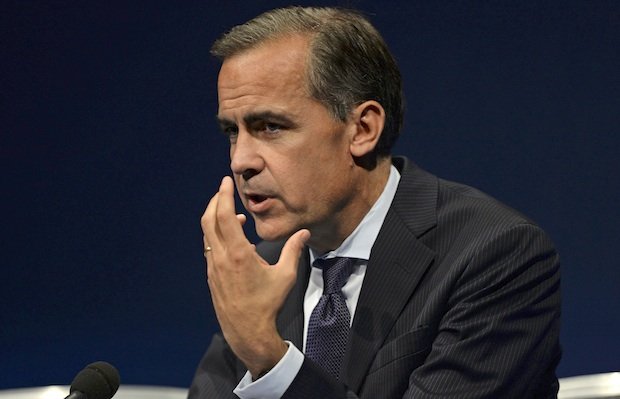Bank of England upgrades growth forecast as it predicts unemployment threshold could be met by end of 2014

The Bank of England (BoE) has brought forward when it expects unemployment to fall to seven per cent by 18 months. It has also upgraded its growth forecast for 2013 from 1.4 per cent to 1.6 per cent and, for 2014, from 2.5 per cent to 2.8 per cent. Growth is set to get stronger, says the Bank's Monetary Policy Commitee, and unemployment will fall more rapidly.
In the Bank's latest inflation report, the MPC has forecast a two in five chance of hitting its unemployment threshold in the fourth quarter of 2014 – a radical shift from its forecast in August which predicted unemployment would remain above seven per cent until summer 2016. The Bank's governor, Mark Carney, had emphasised that he anticipated employment would fall slowly, with households and businesses knowing interest rates would stay at 0.5 per cent for the foreseeable future.
The MPC stressed that reaching the unemployment threshold wouldn't necessarily mean an immediate policy response which, it said, would depend on the outlook for inflation relative to target. The MPC expect inflation to be slightly above its two per cent target in the next year or so. The Bank's forecast for prices has, it said, been dragged down by October's surprise fall in inflation to 2.2 per cent.
Carney added that he is "very comfortable" with current forward guidance and leaving rates unchanged: "We have one of the strongest recoveries in the advanced world. We are not even going to think about tightening policy until the threshold has been achieved. This is the right framework for the right time." He would not give away anything on whether he has plans to raise interest rates: "What would be foolish of us is to anticipate what we're going to learn… This is the point where we learn how much slack is in the economy."
Recovery, emphasises the BoE, has finally taken hold, and it expects the economy to expand by 0.9 per cent in the current quarter. Carney commented that a recovery in wages will come from a recovery in productivity, which, in turn, will be caused from a recovery in demand. He added that the Bank is providing "confidence with policy" that supports recovery. During questions, Carney reiterated that the recovery is being fuelled by a rise in income, not by debt. But, he admitted, real wage growth is needed in order to sustain consumption growth.
Following the report, the pound built on gains from this morning's jobs data.

Jonathan Loynes, Capital Economics:
We retain the view that interest rates will remain on hold rather longer than the markets expect, primarily because we expect inflation to remain weak even as unemployment falls. However, we fear that Mr Carney and colleagues will have their work cut out to prevent market rates from rising further – potentially adversely affecting the economic recovery – if unemployment remains on its recent downward trend.
Charts from the report

